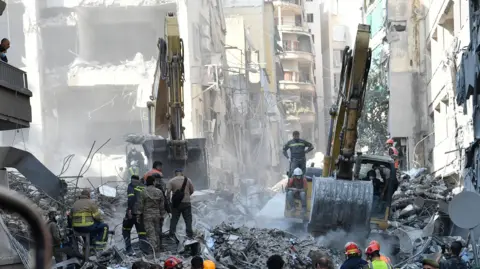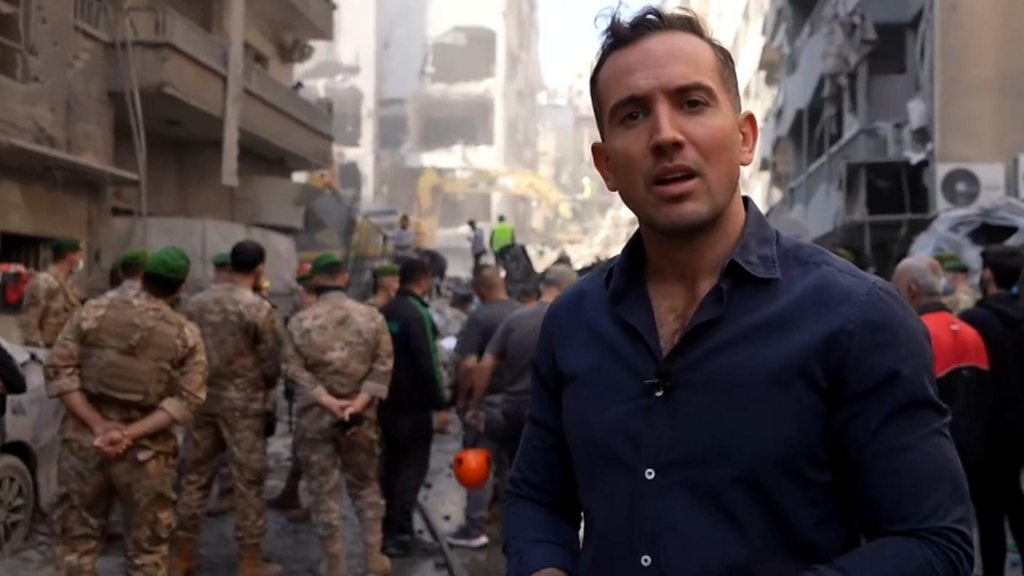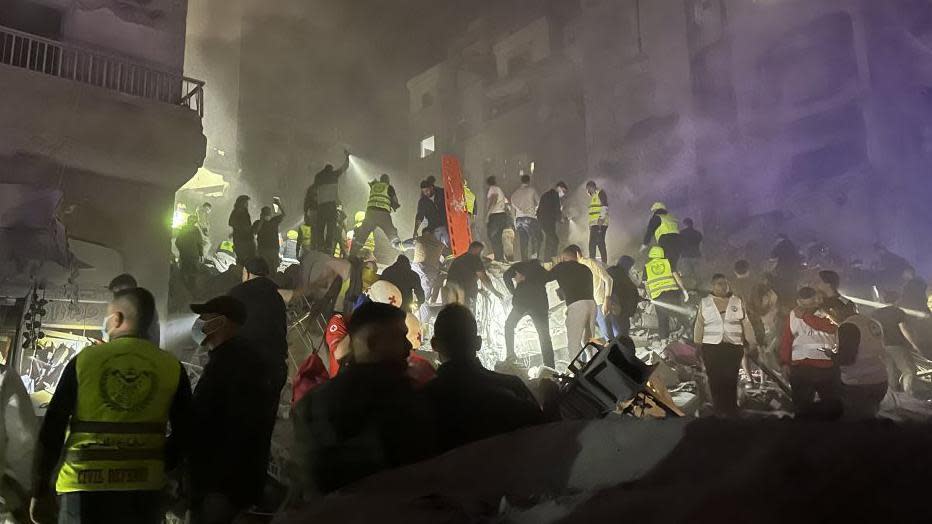A massive Israeli air strike destroyed an eight-story residential building in central Beirut early Saturday, killing at least 15 people and wounding more than 60 others, as Israel intensifies its campaign against Hezbollah despite ongoing peace negotiations.

The pre-dawn attack at 4:00 a.m. local time devastated the densely populated Basta district without warning, reportedly using a bunker-buster bomb, a weapon previously deployed to target senior Hezbollah leadership. Lebanese officials expect the death toll to rise as emergency workers sift through rubble and conduct DNA tests on recovered body parts.
“It was a very horrible explosion. All the windows and glasses were over me, my wife and my children. My home now is a battlefield,” said Ali Nassar, 55, whose nearby apartment was severely damaged. “Even if one person is hiding here… Should you destroy buildings where people are sleeping inside? Is it necessary to kill all the people for one person?”

Israeli media reported the strike targeted Mohammed Haydar, a senior Hezbollah official, though Hezbollah MP Amin Sherri denied any leadership presence in the building. The Israel Defense Forces has not commented on the operation, which came amid additional strikes on Hezbollah strongholds in southern Beirut’s Dahieh district and eastern Baalbek, where 15 others, including four children, were killed.
The escalation coincides with promising developments in U.S.-led peace negotiations. American envoy Amos Hochstein’s recent shuttle diplomacy between Lebanon and Israel has produced a draft agreement proposing a 60-day ceasefire and phased withdrawal of forces. The plan would see Israeli troops leave southern Lebanon while Hezbollah removes its presence, allowing Lebanese military reinforcements in the area.
However, key disagreements remain over withdrawal timelines and international monitoring mechanisms. Hezbollah Secretary General Naim Qassem confirmed the group received the U.S. proposal and outlined conditions including “complete cessation of hostilities and preservation of Lebanon’s sovereignty,” while warning of readiness for prolonged conflict.

The violence has killed more than 3,500 Lebanese and displaced over one million since late September, according to Lebanese authorities. Israel says its campaign aims to enable the return of 60,000 northern Israeli residents displaced by Hezbollah attacks.
Any deal would likely center on UN Security Council Resolution 1701, which ended the 2006 Israel-Hezbollah war by requiring Hezbollah’s withdrawal from areas between the Blue Line border and Litani River. Israel maintains this was never fully implemented, while Lebanon cites Israeli military flights as violations.
bbc.com



